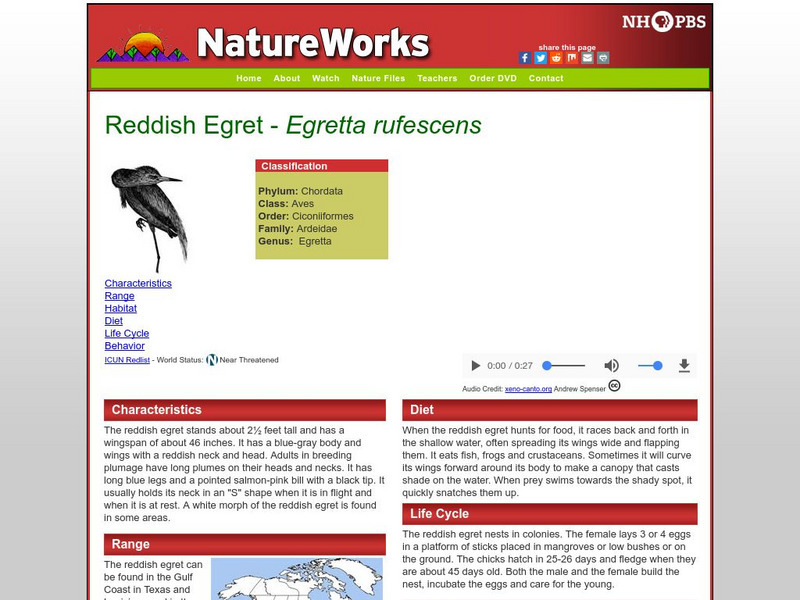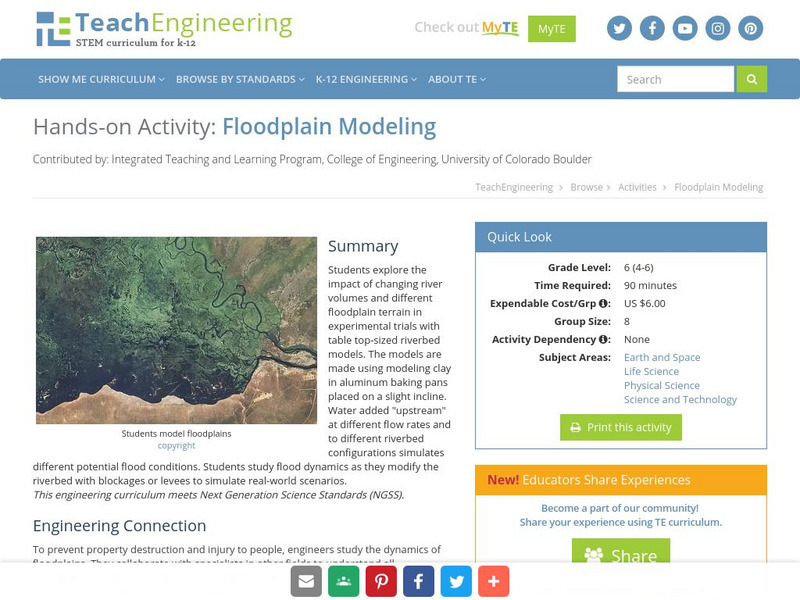Hi, what do you want to do?
Curated OER
Viruses and Host Evolution
Students research viruses and their effects on the evolution of a rabbit population. They complete a teacher created worksheet of questions on their research. They present their research to classmates.
Ministry of Education, Sports & Culture (Samoa) Government
Mesc: Samoa School Net: Forces to Make Weather: Weather & Water Cycle
Explains three forces of nature and how they impact the weather. These include infrared rays from the sun, differences in air pressure, and wind flow when hot and cold air masses meet. Supported by lots of visuals.
PBS
Nh Pbs: Nature Works: Red Headed Woodpecker
The red-headed woodpecker can be found in woodlands throughout the United States east of the Rocky Mountains. The content of this site includes information on the characteristics, habitat, life cycle, range, behavior and diet of this...
PBS
Nh Pbs: Nature Works: Reddish Egret
Find out what characteristics make the Reddish Egret unique. This resource features information about this aquatic bird found in the Gulf Coast in Texas and Louisiana and in the Gulf and Atlantic coasts of southern Florida.
Biology Pages
Kimball's Biology Pages: Antibacterial Agents
This site lists the different antibiotics, tells how they disrupt the life cycle of the bacteria, and give examples of where in nature the antibiotic is from- i.e., penicillin -> bread mold.
TeachEngineering
Teach Engineering: Floodplain Modeling
Students explore the impact of changing river volumes and different floodplain terrain in experimental trials with table top-sized riverbed models. The models are made using modeling clay in aluminum baking pans placed on a slight...
Read Works
Read Works: 1st Grade Lesson: Purposes for Reading
[Free Registration/Login Required] A lesson in which students use the books Nature's Food Chains: What Polar Animals Eat by Joanne Mattern, Life Cycle of a Frog by Angela Royston, and Froggy Goes to School by Jonathan London to learn to...
ArtsNow
Arts Now Learning: Grade 3: Rock N Art
In this arts integrated unit, 3rd graders will explore Rocks and Soil. These projects focus on bringing multiple art forms to the Earth Sciences for third graders. Students will focus on comparing and contrasting the 3 types of rocks, as...
Smithsonian Institution
National Museum of the American Indian: Indigenous Geography
Indigenous Geography helps you develop key understandings on nine different dimensions as they relate to six Native communities located in the Western Hemisphere. Learn about the creation stories, place boundaries and landmarks, calendar...













